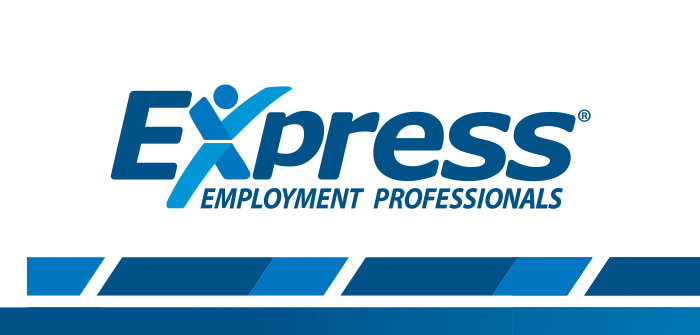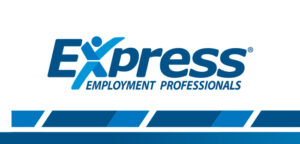Source: Express Employment Professionals, Refresh Leadership Blog, October 14, 2020
Seventy-one percent of U.S. hiring decision-makers agree that looking at candidates’ social media profiles is an effective way to screen applicants, according to a new survey from The Harris Poll commissioned by Express Employment Professionals.
Furthermore, 70% believe employers should screen all applicants’ social media profiles, while the majority (67%) say they use social networking sites to research potential job candidates. For those using social networking to research candidates, more than half (55%) have found content that caused them not to hire the applicant.
And even after the candidate has gotten the job, 78% of U.S. hiring decision-makers believe employees should maintain a work-appropriate social media profile.
Social Media and Recruiting
“I do believe social media is a good screening tool to see how the candidate communicates with others in an informal setting and also as a way to screen for potential red flags,” said John Calabrese, Express franchise owner in Utica, New York. “It’s effective in conjunction with other screening tools such as resumes and references.”
In one instance, Calabrese said his office was prepared to extend an offer of employment to an applicant for a position at a local hospital.
“The employer checked the candidate’s Facebook page and observed profanity and inappropriate photos,” he said. “We were asked to identify other candidates for the position.”
Jan Riggins, general manager for two Express franchises in Fort Worth, Texas, has also had clients decide against hiring candidates based on their social media profiles, but personally doesn’t think it is an effective screening tool.

“I do not believe it is an effective way to screen a candidate, especially with the current highly charged climate,” she said. “I have many friends, family and acquaintances who I would absolutely screen out for a position by looking at their social media profiles. But I also know they have been incredibly successful in their careers. I understand that people use social media for personal use and to express ideas, beliefs and behaviors they would never take into the work environment.”
In Grand Rapids, Michigan, Sonja Bielecki, director of strategic HR for the local Express franchise, says checking an applicant’s social media profiles should only be used to validate work history and experience and recruiters should receive special training on how to conduct this verification process.
“My professional recommendation is not to use it based on the legal ramifications or risk if not done correctly,” she said. “For my requirements, I only view a candidate’s LinkedIn profile and only their experience. Other forms of social media are personal and not professional. Also, those reviewing should be trained not to consider race, age, disability, sexual orientation, religion, etc.”

Job Seekers Lacking Social Media Accounts
In the Harris Poll, 1 in 5 hiring decision-makers (21%) said they are not likely to consider a candidate who doesn’t have an online presence.
“As much as the world is now a place of social media and the ability to post anything, we fail to remember that some people are private and respect that,” Bielecki said. “I would not consider this a strike against the candidate.”
While Riggins usually agrees with Bielecki, she adds that she has used LinkedIn as a screening tool specifically for internal sales rep and professional recruiter positions since the network is such an integral part of those jobs.
Cleaning Up Social Media
With the country continuing to reopen from the COVD-19 shutdown, Express experts say now is the ideal time for job seekers to clean up their social media accounts to avoid losing out on employment opportunities.
“Work to keep your social media accounts current, especially LinkedIn, to reflect your current work experience and accomplishments,” Calabrese said. “They should be free of profanity and inappropriate photos. Remove any posts that may contain personal attacks. It’s ok to share your views but keep them professional and appropriate.”
Bielecki recommends having a third-party review of social media content for a hopefully unbiased and objective opinion. She also suggests some basic rules job seekers and employees should follow when it comes to their online presence:
- If you don’t want everyone to see it, then don’t post it on social media or make it public.
- Be purposeful and intentional in what you are posting by asking yourself “What is my goal in posting this?”
- Less is more. Personal situations should remain with friends and or family. Sharing everything can be perceived negatively, giving those reading a post reason to judge or make assumptions.
- Don’t complain about your employer or coworkers on social media. If there are issues or concerns, they should be brought to the attention of the decision makers who are trained and equipped to support a positive outcome.
“Social media can be a great tool for connecting with others, but it’s important to remember that potential employers are looking at your accounts, too,” Express CEO Bill Stoller said. “Take the time now to clean up your online presence to avoid the heartache later of losing out on the job.”
Survey Methodology
The survey was conducted online within the United States by The Harris Poll on behalf of Express Employment Professionals between April 21 and May 6, 2020, among 1,005 U.S. hiring decision-makers (defined as adults ages 18+ in the U.S. who are employed full-time or self-employed or have been laid off, furloughed, or given a zero hour schedule in the past 60 days but worked full-time or were self-employed full-time prior, work at companies with more than 1 employee, and have full/significant involvement in hiring decisions at their company). Data were weighted where necessary by company size to bring them into line with their actual proportions in the population.

